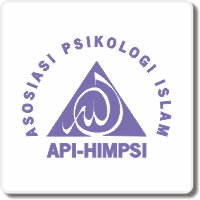Pengaruh Religiusitas Terhadap Penggunaan Gawai yang Bermasalah: Peran Kontrol Diri dan Stres Pada Mahasiswa
DOI:
https://doi.org/10.32923/psc.v3i2.1933Keywords:
problematic smartphone use, religiosity, self-control, stress, undergraduate studentAbstract
Smartphone use is increasing worldwide. Despite the benefit of using a smartphone, a growing body of research has reported smartphone use's negative effect. Lack of self-control has been associated with problematic use of smartphones as well as stress. However, there is still little evidence of how religiosity could have an impact on problematic smartphone use. This study aimed to examine the indirect effect of religiosity on problematic smartphone use via self-control and stress. A few 146 undergraduate students enrolled in this study. They completed an online survey comprising problematic smartphone use, religiosity, self-control, and stress. Our findings showed a negative association between religiosity or self-control with problematic smartphone use. Stress also correlated positively with problematic smartphone use. Path analysis demonstrated the mediation effect of self-control on religiosity and problematic smartphone use, but not the stress. These results underlined the psychological mechanism underlying smartphone use of students. Moreover, religiosity could be considered to prevent the detrimental effect of problematic smartphone use.
Downloads
Published
Issue
Section
License
Copyright Notice
The Psychosophia: Journal of Psychology, Religion, and Humanity is under the Creative Commons Attribution 4.0 International (CC-BY 4.0) License, according to which:
1) Authors retain copyright and grant the journal the right to first publication, with the work simultaneously licensed under the Creative Commons Attribution (CC-BY 4.0) that allows the sharing of articles published with the acknowledgment of authorship and the initial publication in this journal.
2) The authors are authorized to make additional contracts separately for distribution of the version of the work published in this journal (for example, publication in an institutional repository or as a chapter of the book), as long as there is recognition of authorship and initial publication in this journal.
3) Authors are authorized and encouraged to publish and distribute their work online (for example, in institutional repositories or on their personal pages) at any time before or during the editorial process, as it increases the impact and reference of the published work.






